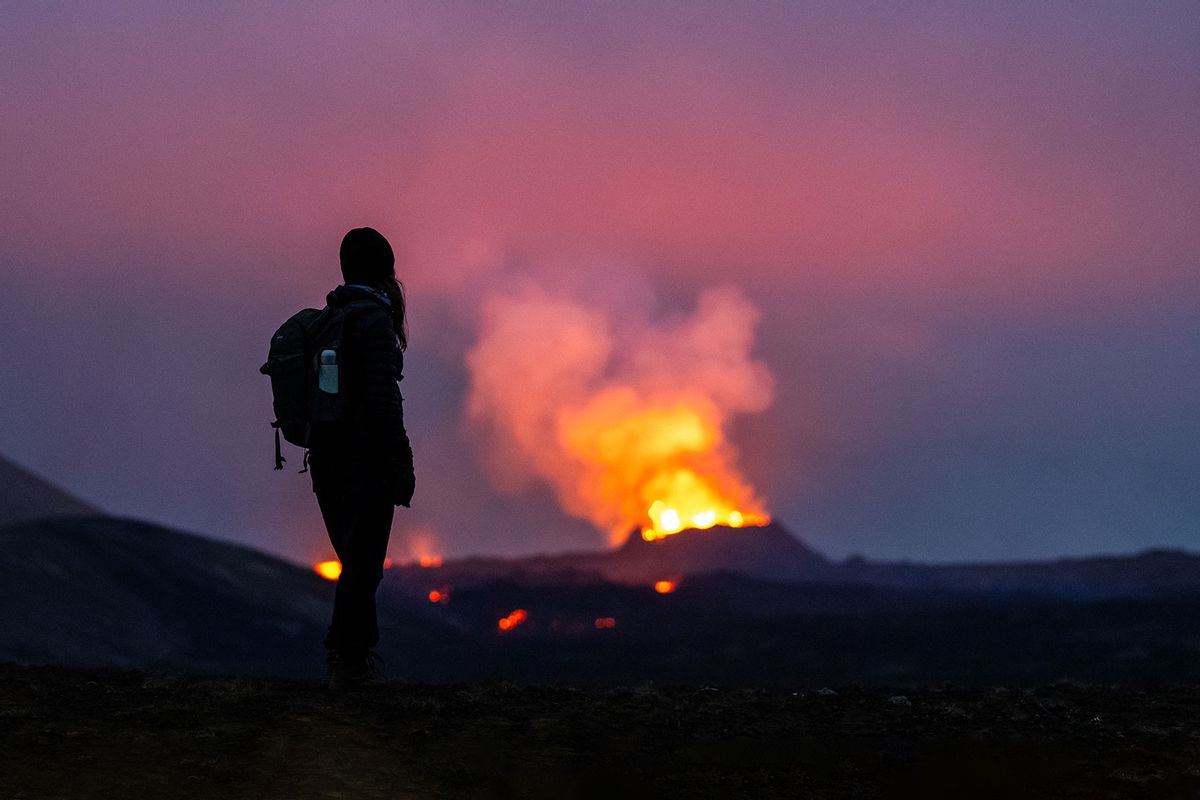The tremors we felt were minor but ominous. On November 9, the Icelandic Meteorological Office registered roughly 1,400 earthquakes, including a 4.8 magnitude one in the southern peninsula area, near the famed Blue Lagoon. The quakes had been triggered by an increasing uptick in movement of the magma under the surface in the area.
Soon, the resort announced a temporary shutdown, the nation had declared a state of emergency, and on November 10, the town of Grindavik was issued an evacuation order. That evening, in Reykjavik, my group of friends and I had been settling in to our hotel when a flurry of activity began, little rumbles that caused the door of my room's mini safe to swing slowly open. For the past few days, we'd been walking on black beaches formed by lava, driving past enormous craters left by dormant volcanos. But Iceland's unique geological profile is never a thing of the past.
We need your help to stay independent
For a small country with 32 active volcanos, Iceland does an efficient job of keeping its populace and its tourists as safe from harm as possible. A sparse population of just 372,000 people, combined with a well-monitored and communicated emergency system, help explain why there have been few fatalities in the country's entire history. When the Eyjafjallajökull volcano erupted in 2010, scattering ash caused a backlog of delayed flights but no fatalities. When the Eldfell volcano erupted over a period of several months in 1973, the small town of Vestmannaeyjar sustained massive damage — and just one death.
But with new seismic activity over the past two years, concerns about the potential damage of a major eruption are becoming more serious.
"Nobody knows what will happen the next hours or next days or weeks," Hanna, the adroit and knowledgable Icelander who'd been our guide throughout our trip, told me via message earlier this week. "This is nothing like the last three eruptions since this time, the earthquakes are now in and around the town of Grindavik. A lot of houses and roads are already damaged just because of the earthquakes, and we will not know what will happen if the eruption happens in the town itself."
Earlier this week, France24 reported that "With massive crevices ripping roads apart and buildings' concrete foundations shattered, the once picturesque Grindavik now resembles a warzone."
Want more health and science stories in your inbox? Subscribe to Salon's weekly newsletter Lab Notes.
"All the people have moved from Grindavik and nobody knows for how long," said Hanna, "and on the news that is the hardest part of everything — not knowing if they will go home in few days or maybe never."
"People were allowed to go home today and get few more things from the houses," she explained. "I think that everyone is worried about what is going to happen, and if there will be eruption in the town, close by or even in the sea."
She added, "The good thing about the last eruptions in Iceland this year and the last year is that where the eruptions came up it was not close to roads and houses. They were in the highlands or in the mountains."
With an eruption seemingly imminent, over 3,000 Icelanders have been evacuated from their homes, and the Grindavik region now faces what University of Iceland geophysicist Freysteinn Sigmundsson told Agence France-Presse will be "a difficult period of uncertainty." In the meantime, an entire country waits and watches.
"We just now cross our fingers," Hanna told me, "and hope this will be over soon."



Shares